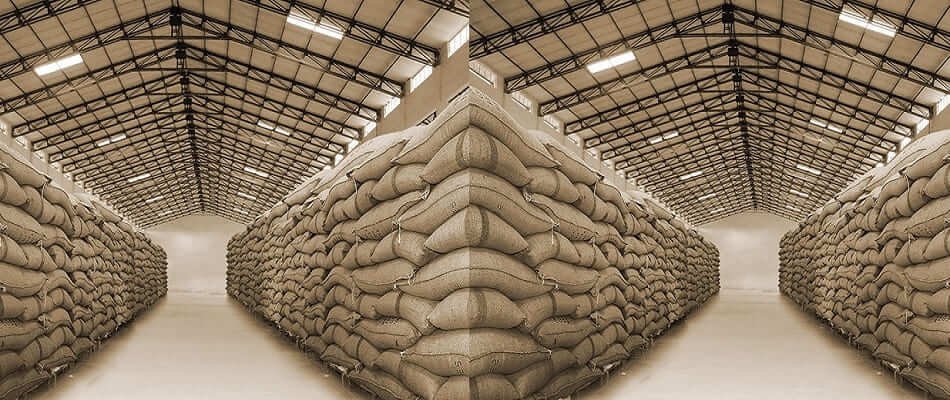The government approved Flat bulk storage “World’s Largest Grain Storage”
Flat bulk storage (FBS) could be a good option for the Indian government, particularly the Ministry of Cooperation, which is planning to set up 70 million tonnes of foodgrain storage, according to a post-harvest management and foodgrain handling expert.
In February of this year, the Ministry of Cooperation announced that the Centre had approved the “World’s Largest Grain Storage Plan in the Cooperative Sector,” which has been implemented as a Pilot Project in various states/UTs across the country.
“The Ministry of Cooperation, Department of Food and Public Distribution, Food Corporation of India (FCI), and National Cooperative Development Corporation have signed an MoU to fully utilize storage capacity created at the primary agricultural cooperative society (PACS) level under the pilot program”. it stated.
Also Read | Food Ministry directs CWC and FCI to raise 29,000cr via asset monetisation
Munishwar Vasudeva, expert and managing director of Lotus Harvestec Pvt Ltd, said that FBS has the versatility of multi-commodity storage and is a backward and forward integration solution.
According to him, the Ministry of Cooperation is investing in warehouses in all producing areas of the country, and FCI will design them as industrial silos on a hub and spoke basis, with producing and consuming states clearly defined.
The establishment of these warehouses is critical because it will assist farmers in obtaining “warehouse receipts” that will allow them to obtain loans rather than selling their produce due to financial constraints.
“The capital expenditure for FBS is the same as for a warehouse, but equipment costs an additional 25%. However, 80% more capacity utilization will offset the additional cost,” he stated.
Vasudeva, who collaborated with Adani Logistics to establish a few silos across the country, stated that 170-180 million tonnes of foodgrains are handled and stored at the farm. Gunny bags are used by 40-42% of farmers, while 15-20% store bulk items in rooms without proper modern scientific interventions. About 10-15% of grains are stored in metallic bins, while the rest are kept in traditional structures made of local materials.
These storage facilities rely on manual handling and incur recurring costs for bag procurement and distribution. Automation of these is difficult, and grains stored in bags lose both quality and weight. Aeration and fumigation have improved, but operations are inefficient due to a lack of automation, he stated.
National policy should aim to reduce storage and transit losses at the farm level, where approximately 70% of foodgrain production is retained and consumed. It should encourage farmers to use scientific storage methods.
The Centre could choose to integrate modernised mechanical handling systems via FBS. This will facilitate fumigation and include modular compartments for storing multiple commodities. It can aid in short and long-term storage, and roofs equipped with solar panels can make operations self-sustainable.
Also Read | Steamed rice does not fall under the raw rice category says FCI
Vasudeva, an expert in green and brown fields storage projects, believes that implementing projects quickly and allowing for greater storage flexibility will result in higher capacity utilization.
FBS offers the option of increasing the capacity of existing godowns by 40-60%. The expert, who previously worked as a silo design specialist for the Bangladesh government, suggested that the Center consider alternative storage designs.


















Add Comment